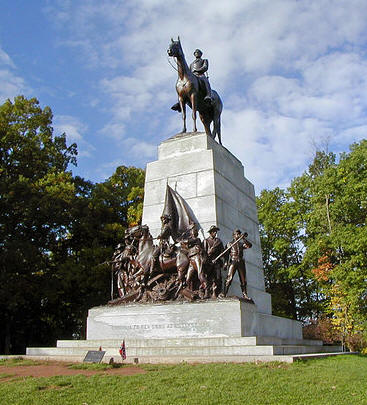
The Great Smoky Mountain Journal
Staff Reports
Posted: Sunday, January 21, 2018 11:23 AM
Officials At Gettysburg National Military Park Says Battlefield Memorials Will Stay
"These memorials, erected predominantly in the early and mid-20th Century, are an important part of the cultural landscape," battlefield spokeswoman Katie Lawhon told the Hanover Evening Sun.
Gettysburg was the site of the bloodiest battle of the Civil War, from July 1-3, 1863.
The skirmish at the once-tiny crossroads between Harrisburg, Pa. and Frederick, Md. was the only battle in the North, aside from raids in Chambersburg and Mechanicsburg.
There are more than 1,300 memorials at the park- ranging in size from tiny stone markers for smaller regiments' positions, to the massive Pennsylvania State Monument that includes a cupola for visitors.
The park also has several streets named after soldiers on both sides, including the Union's Daniel Sickles and Winfield Scott Hancock, and the Confederacy's Ambrose Wright.
There's also a "United States Avenue" and a "Confederate Avenue" which both roughly cover the main Union and Confederate positions.
The National Park Service's policy on battlefield monuments states that the feds are "committed to safeguarding these unique and site-specific memorials in perpetuity, while simultaneously interpreting holistically and objectively the actions... they commemorate."
Farther south in Richmond, Va., gubernatorial candidate Ralph Northam (D-Accomac) said he will press for several Confederate statues along the city's Monument Avenue to be taken down.
However, Northam said he would "defer to the city" on how to proceed in doing so, according to the Richmond Post-Dispatch.
Democratic Mayor Levar Stoney said a commission established to "add context" next to the monuments is preferable to taking them down, the paper said

